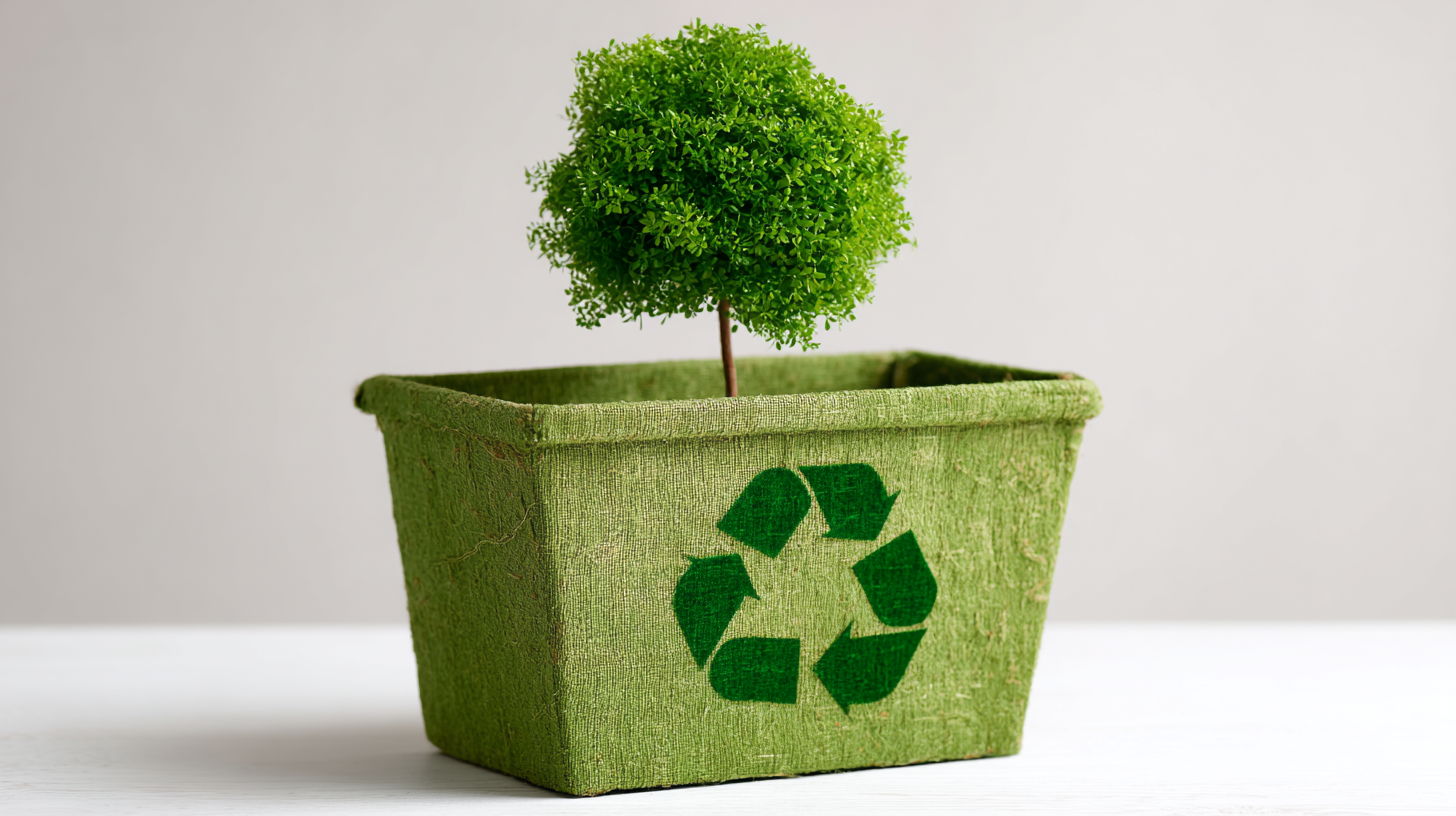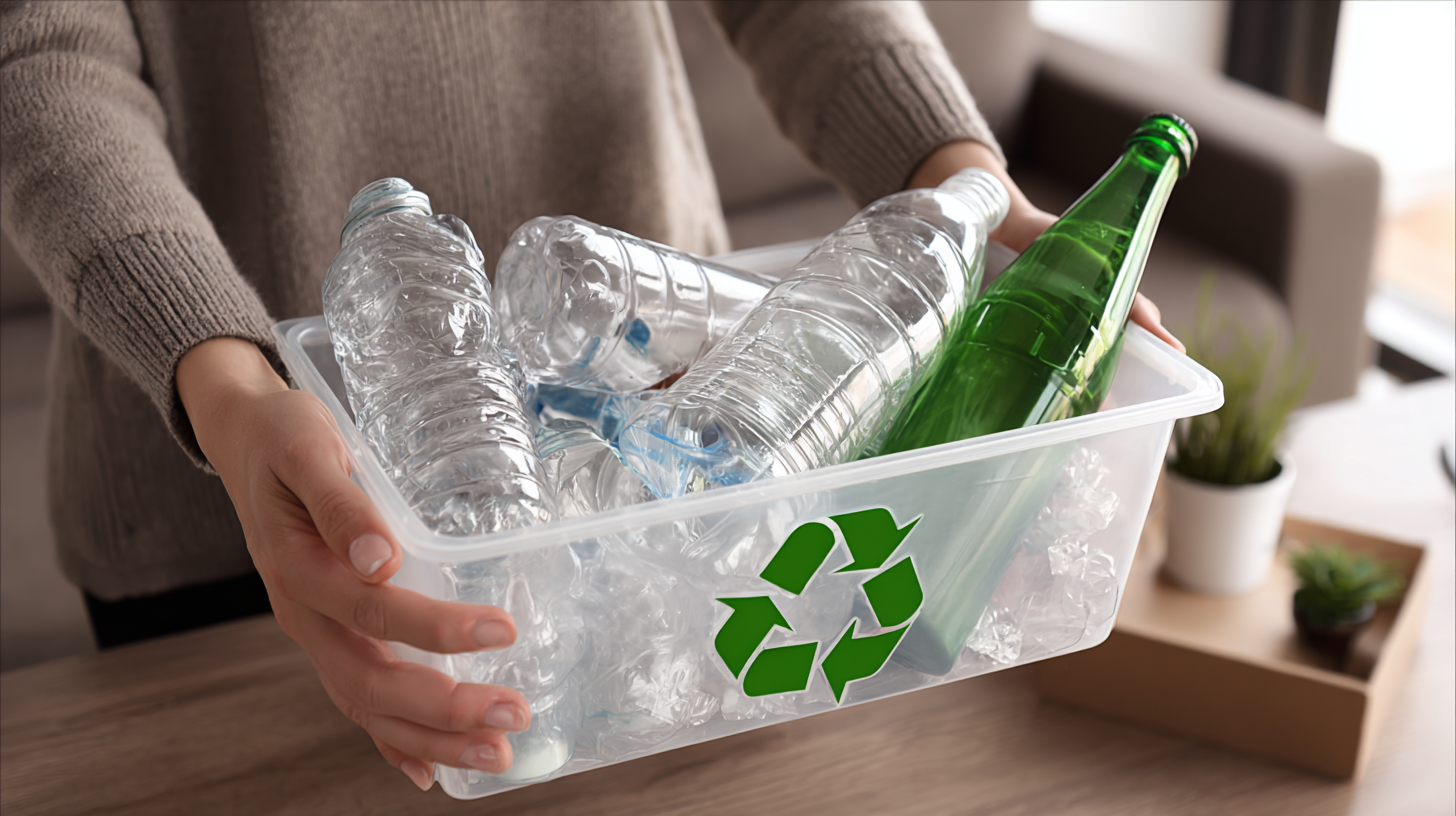5 Incredible Tips to Effectively Recycle from Home for a Greener Planet
In recent years, the emphasis on sustainable living has grown significantly, with a particular focus on recycling, which is crucial for environmental protection. According to the Environmental Protection Agency (EPA), Americans generated about 292.4 million tons of trash in 2018, yet only 35% was recycled or composted. This statistic highlights the urgent need for individuals to adopt practices that promote effective waste management strategies, particularly as more people seek to "recycle from home." By implementing simple yet impactful recycling techniques, households can significantly reduce their carbon footprint and contribute to a greener planet. Research indicates that increasing the recycling rate by just 1% can prevent the release of approximately 1.2 million metric tons of carbon dioxide equivalent into the atmosphere. Therefore, understanding and utilizing effective recycling practices at home is not only essential for reducing waste but also plays a pivotal role in combating climate change.

How Recycling at Home Can Reduce Landfill Waste by Up to 75%
Recycling at home is not just a trend; it's a crucial step towards reducing landfill waste effectively. According to the Environmental Protection Agency (EPA), recycling can divert up to 75% of materials from landfills. This staggering figure underscores the importance of adopting sustainable practices within our households. With the average American generating about 4.4 pounds of waste daily, implementing effective recycling strategies can lead to a significant decrease in waste accumulation and contribute to a healthier planet.
One of the most effective tips for recycling at home is to set up designated bins for different materials, such as paper, plastics, and metals. This organization makes it easier to sort and dispose of items correctly, ensuring that more materials can be recycled. Additionally, consider composting organic waste, which not only reduces landfill contributions but also enriches your garden soil. Another practical tip is to purchase products made from recycled materials, thereby supporting the recycling industry and creating a demand for sustainable goods.
By integrating these practices into our daily routines, we can collectively make a substantial impact. According to a recent report by the National Recycling Coalition, communities that prioritize local recycling programs can increase their diversion rate significantly, proving that small changes at home can lead to broader environmental benefits.
Understanding the Environmental Impact: The Role of Household Recycling in Lowering Carbon Footprint
Recycling at home plays a crucial role in reducing our carbon footprint, significantly impacting climate change. According to the Environmental Protection Agency (EPA), recycling and composting prevented the release of approximately 186 million metric tons of carbon dioxide equivalent into the air in 2018 alone. Each item we recycle instead of throwing away reduces the need for new materials to be harvested and processed, thereby saving energy and lowering greenhouse gas emissions.
To maximize recycling efforts at home, here are a few essential tips. First, ensure that you have a clear separation system for recyclable materials, including paper, plastics, metals, and glass. This not only streamlines the recycling process but also encourages family members to participate actively. Second, educate yourself about local recycling guidelines, as improper sorting can lead to contamination, making entire batches of recyclables non-recyclable. Lastly, consider composting organic waste, which can significantly reduce landfill contributions and help sequester carbon in the soil.
By integrating these practices, households can contribute to a more sustainable environment while lowering their individual and collective carbon footprints. Implementing effective recycling strategies at home is essential to mitigating the environmental impact and fostering a greener planet.
5 Incredible Tips to Effectively Recycle from Home for a Greener Planet - Understanding the Environmental Impact: The Role of Household Recycling in Lowering Carbon Footprint
| Recycling Material | Average Weight (lbs) | Carbon Savings (lbs CO2) | Energy Savings (kWh) |
|---|---|---|---|
| Plastic Bottles | 10 | 16.5 | 3.5 |
| Aluminum Cans | 15 | 33.2 | 7.5 |
| Cardboard | 20 | 34.5 | 10 |
| Glass Bottles | 25 | 29.5 | 6.2 |
| Paper | 30 | 24.5 | 10.5 |
Innovative Ways to Sort and Store Recyclables for Maximum Effectiveness
Sorting and storing recyclables effectively is crucial for maximizing recycling efforts at home. To achieve this, innovative solutions can be inspired by recent advancements in sustainable practices. One effective approach is creating designated bins for different materials, such as plastics, glass, and paper, to simplify the sorting process. Using clear labels and color coding can also enhance visibility and help family members understand where each item belongs. Additionally, incorporating compact, stackable containers can optimize space while maintaining organization within your home.
Another valuable technique involves utilizing creative storage solutions that recycle old materials. For example, repurposing glass jars to store small recyclables or using sturdy cardboard boxes to separate materials can contribute to a sustainable lifestyle. Fostering a habit of rinsing and cleaning recyclables before storing them prevents contamination, which is essential for maintaining the recyclability of the materials later on. Embracing these innovative ways not only facilitates a cleaner home but also aligns with broader initiatives promoting a circular economy and reducing waste, ultimately benefiting the planet.
The Economic Benefits of Home Recycling: Saving Money While Helping the Planet
Recycling from home not only aids in environmental conservation but also offers significant economic advantages. By committing to recycling, households can reduce waste disposal costs while earning money through recycling programs or deposits on recyclable materials. For instance, collecting and returning aluminum cans or glass bottles can provide a small but tangible financial return. Additionally, recycling reduces the need for new raw materials, which often translates to lower prices for consumers over time.
To make your recycling efforts more effective, consider implementing these simple tips. First, designate a specific area in your home for recyclables, making it easier to sort items like paper, plastics, and metals. This not only streamlines the recycling process but also encourages everyone in the household to participate. Second, familiarize yourself with your local recycling guidelines to ensure compliance and maximization of your recycling output. Lastly, engage in community recycling initiatives or collaborate with neighbors to enhance your efforts, as this can further amplify the economic and environmental benefits associated with recycling.
By integrating these practices into daily life, you can enjoy the financial benefits while contributing to a greener planet. Embracing home recycling is a win-win scenario, blending personal savings with collective environmental responsibility.

Leveraging Community Resources: How Local Initiatives Can Enhance Household Recycling Efforts
Local initiatives play a crucial role in enhancing household recycling efforts. Many communities have established programs that not only provide residents with resources for recycling but also foster a culture of sustainability. For instance, local recycling centers often offer workshops and educational materials to help families understand what can and cannot be recycled, thereby reducing contamination in recycling bins. By participating in these programs, residents gain valuable insights into effective recycling practices tailored to their specific locality.

Moreover, community engagement initiatives, such as neighborhood clean-up days or recycling drives, encourage households to come together and share their knowledge and resources. This collaborative spirit creates a stronger commitment to recycling, as individuals feel supported by their peers. Additionally, local government incentives, like reward programs for proper recycling, can motivate residents to be more diligent in their recycling efforts. As communities work collectively toward a greener planet, the impact of these local initiatives can lead to significant improvements in recycling rates and environmental health.
Related Posts
-

How to Achieve a Sustainable Future with Recycled Plastic Innovations
-

How to Transform Recycled Plastic Bottles into Sustainable Home Decor
-

Exploring the Future of Recycled Materials at the 138th Canton Fair 2025
-

Driving Sustainability: The Role of Recycled Plastic Materials in China's 138th Import and Export Fair 2025
-

How to Transform Recycled Plastic Materials into Innovative Eco Friendly Products
-

Exploring Market Trends in Recycled Plastic Furniture at the 138th Canton Fair 2025
